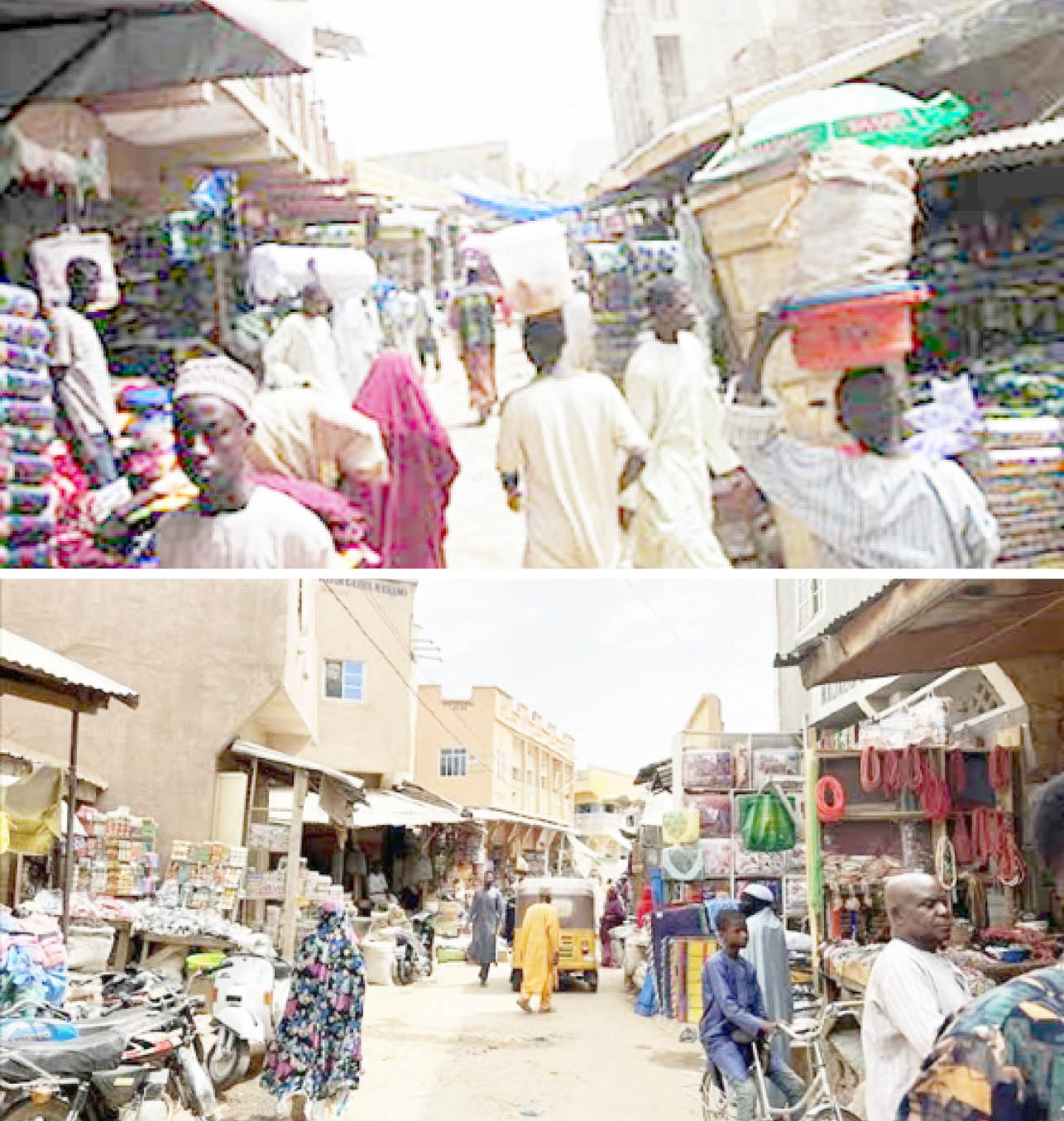Even with the CBN’s directive for banks to dispense the old naira notes, the naira scarcity is still yet to end. As the Ramadan fast approaches its peak, many muslim faithfuls decry the high cost of foodstuff due to lack of naira notes.
For Hauwa Murtala, a widow, naira scarcity has made things very difficult for her and her six children in this month of Ramadan. They have been forced to ration food to survive.
Narrating her ordeal to Daily Trust Saturday she said, “Things have really changed. Last year, I was able to buy half bags of rice, beans, and even yams, but this year, I only bought two measures (mudus) of millet, half mudu of sugar and two mudus of rice, in addition to the charcoal I bought to cook for the whole month.
“I have no cash. I only get little amount to take me to work and to Singer Market, where I usually buy foodstuff. And there are extra charges on every bank transfer on goods, especially by Point of Sale (POS) vendors where shop owners don’t have the machine.”
Saudi embassy distributes Ramadan gifts in Abuja
Group celebrates Tinubu, donates food items to Abuja children’s home
Daily Trust Saturday reports that since Muslims in Nigeria joined the rest of the world to commence the holy month of fasting on March 23, it has not been a pleasant experience, a situation occasioned by naira scarcity. Nigerians have been forced to besiege banks on a daily basis, resulting in long queues, as many Automated Teller Machines (ATMs) are empty.
Sharing their ordeals, Muslim faithful in Kano bemoaned the effect of naira scarcity on the prices of foodstuff.
One of the Kano residents, Hauwa Murtala also said, “I had to search for traders who would accept bank transfers for payment. Alhamdulillah, I was able to stock my home with food and other basic needs, but with extra charges on transfers that I am not comfortable with.
“I think the prices of foodstuff in my area are somewhat unstable because of the scarcity of cash. If you buy a loaf of bread worth N1,000, you have to add N100. The bread itself is already expensive, not to mention other foodstuffs that go with Ramadan, such as beans, millet, tamarind, cooking oil, fruits, eggs, yam and potatoes.”

Traders blame bank charges for skyrocketing food prices
When Daily Trust Saturday visited markets in Kano, it was observed that prices of food items continued to increase on a daily basis. This is despite calls by prominent clerics and traditional rulers like the Emir of Kano, Alhaji Aminu Ado Bayero, on the traders to be circumspect in their quest for excessive gains that could make life more difficult for the people.
But a trader at Singer Market, Alhaji Abdurrahman, disclosed that the increase in the cost of commodities only affected buyers using bank transfers because of transaction charges, as well as the fact that traders have to join long queues at banks and ATMs to get the cash they pay local traders and farmers in villages.
“These village people do not have accounts, and even if they do, they don’t have access to the banks, or so they told us. However, it is not all of us that charge extra money for transactions.
“But the price of groundnut oil increased due to cash scarcity and because of the scarcity of the commodity in the markets.
“For example, 25 litres of vegetable oil, which was sold at N31,800 before Ramadan, is now N32,500 or more. But 25 litres of palm oil, which cost N27,500, dropped to N27,000,” he said.
He explained that there was a drop in the price of palm oil because it is not used as much as groundnut or vegetable oil during the holy month, in addition to the fact that producers from the southern part of the country reduced its price.
“But this prize is strictly for people paying with cash; there`s an additional charge for customers using bank transfers,” he added.
We’re not happy with the situation – Traders
Dan Gayu, who sells cooking oil at Kasuwar Galadima, said that even traders were suffering from the effect of naira scarcity as it has led to very low turnout of customers despite that it is already a week into Ramadan.
He said, “Despite the fact that there has not been an increase in the price of palm oil here in Galadima market, there are no customers like in 2022. For example, 25 litres of groundnut oil is sold at N33,000, vegetable oil 28,000, while 3 litres of groundnut oil is 3,700, while that of vegetable oil costs N6,100, same as before Ramadan.
“Despite these unusual prices, you can see that there are no buyers. As I am talking to you now, I sold oil to only one person today; the day before yesterday none. Who knows what would happen tomorrow?”
Another trader from Rimi Market, Ahmad Umar Dankoli said, “Customers are not many. All we can say is Alhamdulillah because you cannot even begin to compare this year’s Ramadan with the last.
“This year, it is like everybody is buying what they consider a necessity, such as millet and tamarind for traditional Ramadan meals at home or for alms to mosques and the needy. Its mudu is sold at N700.
“People also buy small beans a lot for akara, and it is sold at N1,200. Before Ramadan it was sold at N1,100.”
At the Singer Market, the price of seasoning has also increased to N750 per bag. And the price of a small local bag of rice increased to N16,500 from N15,500, while the foreign type has gone up from N16,500 to N18,500.
A bigger bag of local rice is now sold at N31,500 from N33,000, while that of foreign now goes for N39,000 from N35-36,000, a shopkeeper told Daily Trust Saturday.
Many Muslims who spoke with our correspondent expressed gratitude for being alive to witness another Ramadan period despite the present challenges, and urged the federal government to intervene and reduce the high cost of living in the country.

 Join Daily Trust WhatsApp Community For Quick Access To News and Happenings Around You.
Join Daily Trust WhatsApp Community For Quick Access To News and Happenings Around You.


